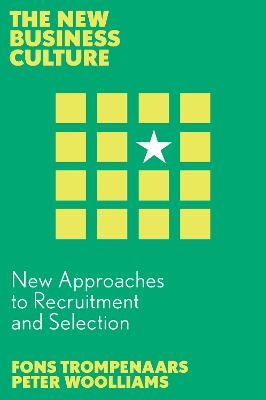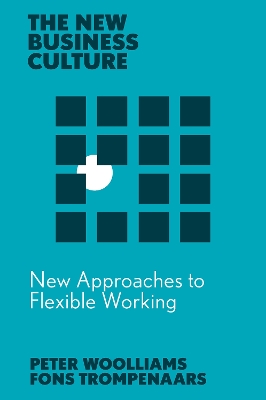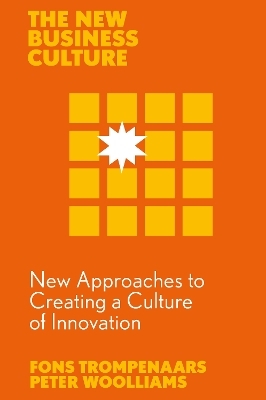New Business Culture
3 total works
New Approaches to Recruitment and Selection
by Fons Trompenaars and Peter Woolliams
Current recruitment and selection practices are essentially a cloning process which seeks to match applicants with the current corporate culture of the hiring organisation. This ignores applicants with different points of view, differing value systems and career aspirations. Authors Fons Trompenaars and Peter Woolliams explore the idea that, while all organisations should develop and promote their core values, the application of them needs to be revisited.
New Approaches to Recruitment and Selection presents a new framework that compares current corporate cultures with the evolving value systems of current and potential employees. The authors believe that applicants should match the organization’s needs and explore how different categories of applicants can enrich the organisation whilst providing full engagement.
The authors’ longitudinal research on traditional frameworks and practices shows that while companies strive to be objective, they are rarely free of cultural bias. They identify serious shortcomings in how organisations utilise their people. While most organisations are implementing a wide range of policies and programmes to identify and eliminate pay inequalities, and improve their attractiveness to women and minorities, great change has not materialised.
Each volume in this series will explore failing established models and propose new conceptual frameworks with practical approaches. International case studies enrich the arguments and findings.
Purchase of this book includes exclusive access to app-based content, enabling readers to explore the application of specific concepts in further detail.
Whilst Covid-19 suddenly forced many workers (who could) to work from home which prompted many rapidly produced anecdotal publications about the effects, there has been little or no organised evidence-driven assembled body of knowledge leading to a conceptual framework to inform the evolving future of flexible working. Dictums from management pleading employees to return to the office are highly subjective. There remains a conspicuous absence of a rigorous understanding for both employers and employees to provide a framework for identifying best practice and how the opportunities can be best synergised.
The authors’ longitudinal research on traditional frameworks and practices on flexible working they had begun long before Covid-19 serious shortcomings in job design and ways of working how organisations utilise their people.
New Approaches to Flexible Working presents a new framework that explores the perspectives of employers and employees in the changing world of work. The authors demonstrate that reconciling the competing demands of employers and employees through flexible working can elicit ways of working that can secure optimum contributions from employees whilst enriching the organisation with increasing job satisfaction of employees’ changing expectations.
Each volume in this series will explore failing established models and propose new conceptual frameworks with practical approaches. International case studies enrich the arguments and findings.
Purchase of this book includes exclusive access to app-based content, enabling readers to explore the application of specific concepts in further detail.
New Approaches to Creating a Culture of Innovation
by Fons Trompenaars and Peter Woolliams
In an era marked by the dominance of a few corporate giants, and the ease of replicating ideas at minimal costs, the imperative for organisations of all sizes to continually innovate has become paramount. Faced with this reality, CEOs increasingly perceive innovation as the key to fostering organic growth and enhancing brand equity. Rather than confining innovation to product or process development, business leaders are pivoting towards innovative business model differentiation as a cornerstone of success.
New Approaches to Creating a Culture of Innovation offers fascinating insights into how companies can embrace innovation and make it work for them at both a personal and company level. Drawing on extensive market research, business gurus Fons Trompenaars and Peter Woolliams outline effective innovation strategies that can be implemented at scale.
This original work will appeal to specialists in all areas of management and leadership, HR professionals giving support to the development of individuals and teams, leaders involved in changing their corporate culture, employees wanting to exert their creativity, and business studies students at both undergraduate and MBA levels. Purchase of this book includes exclusive access to app-based content, enabling readers to explore the application of specific concepts in further detail.


